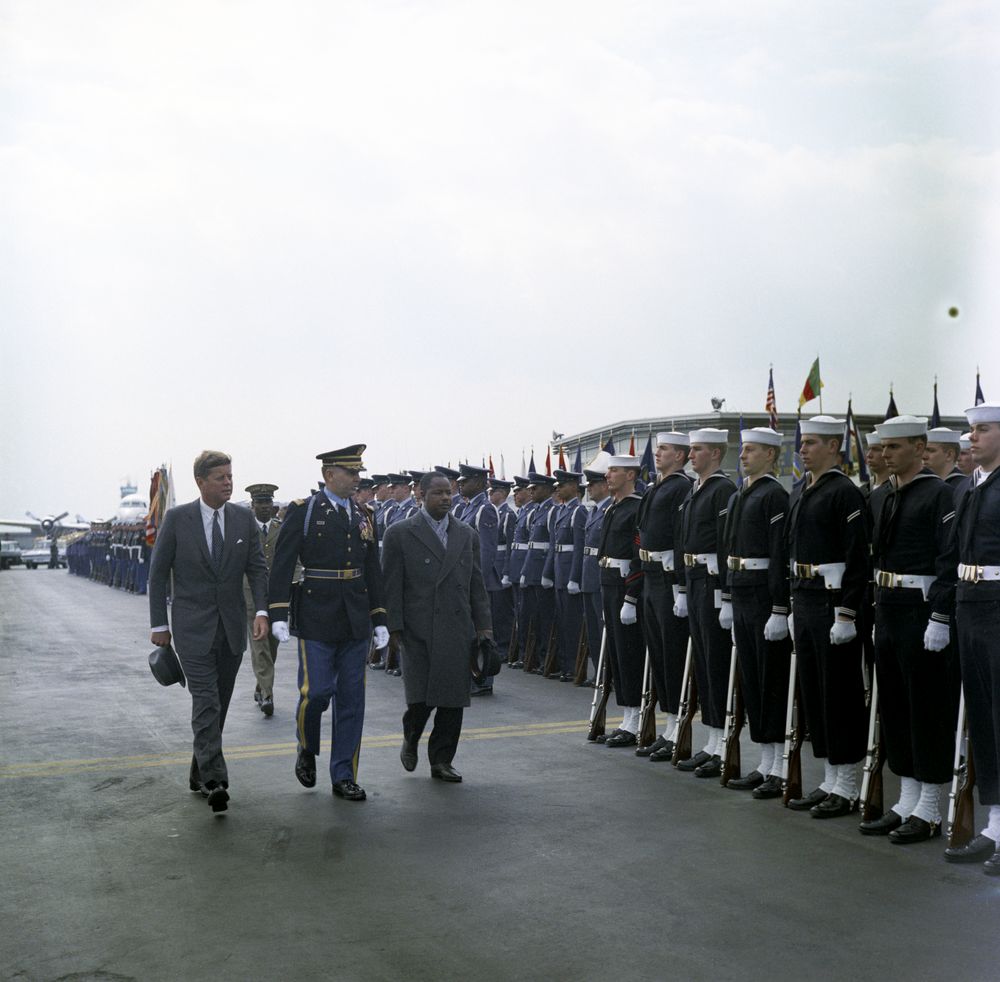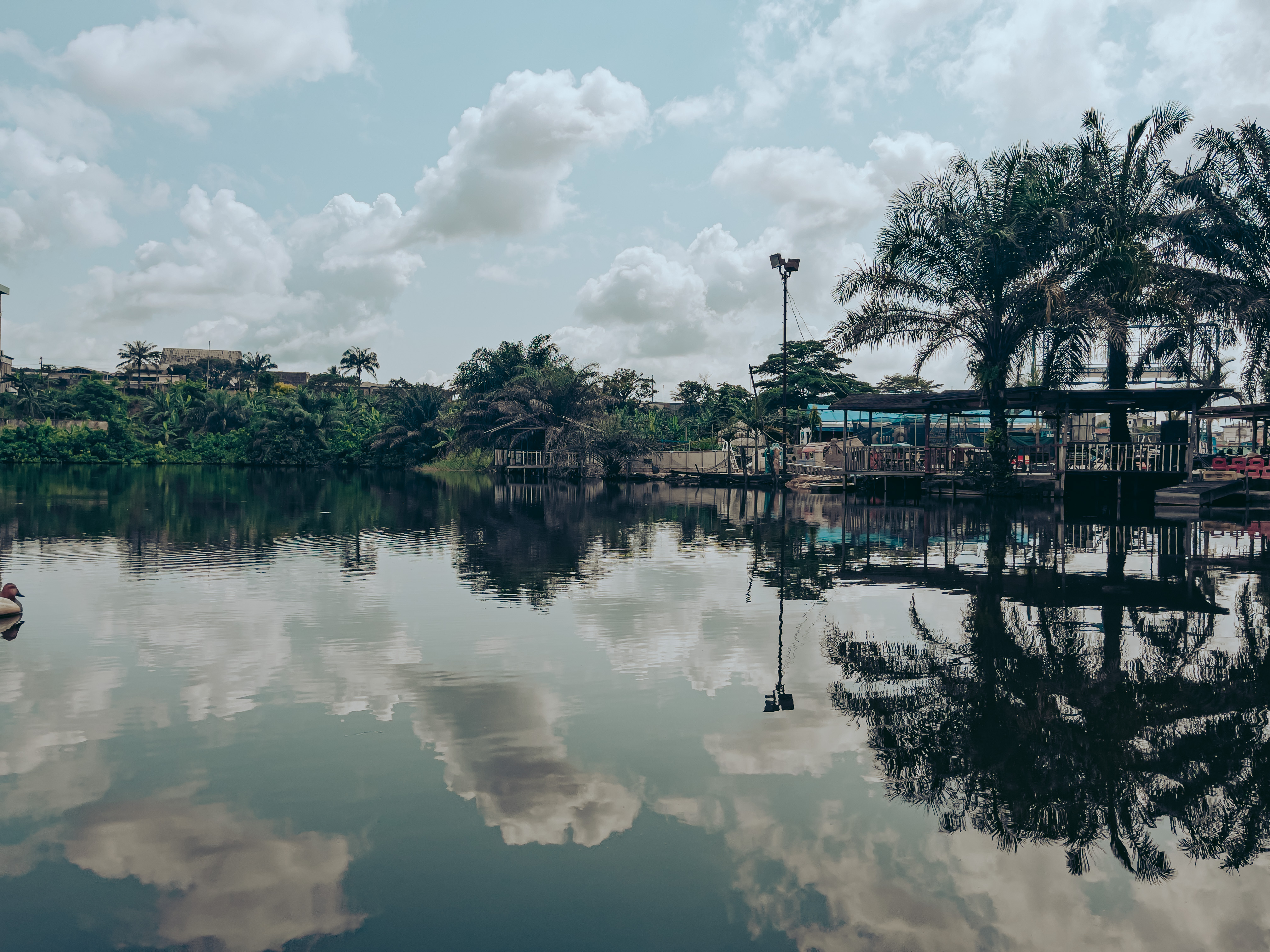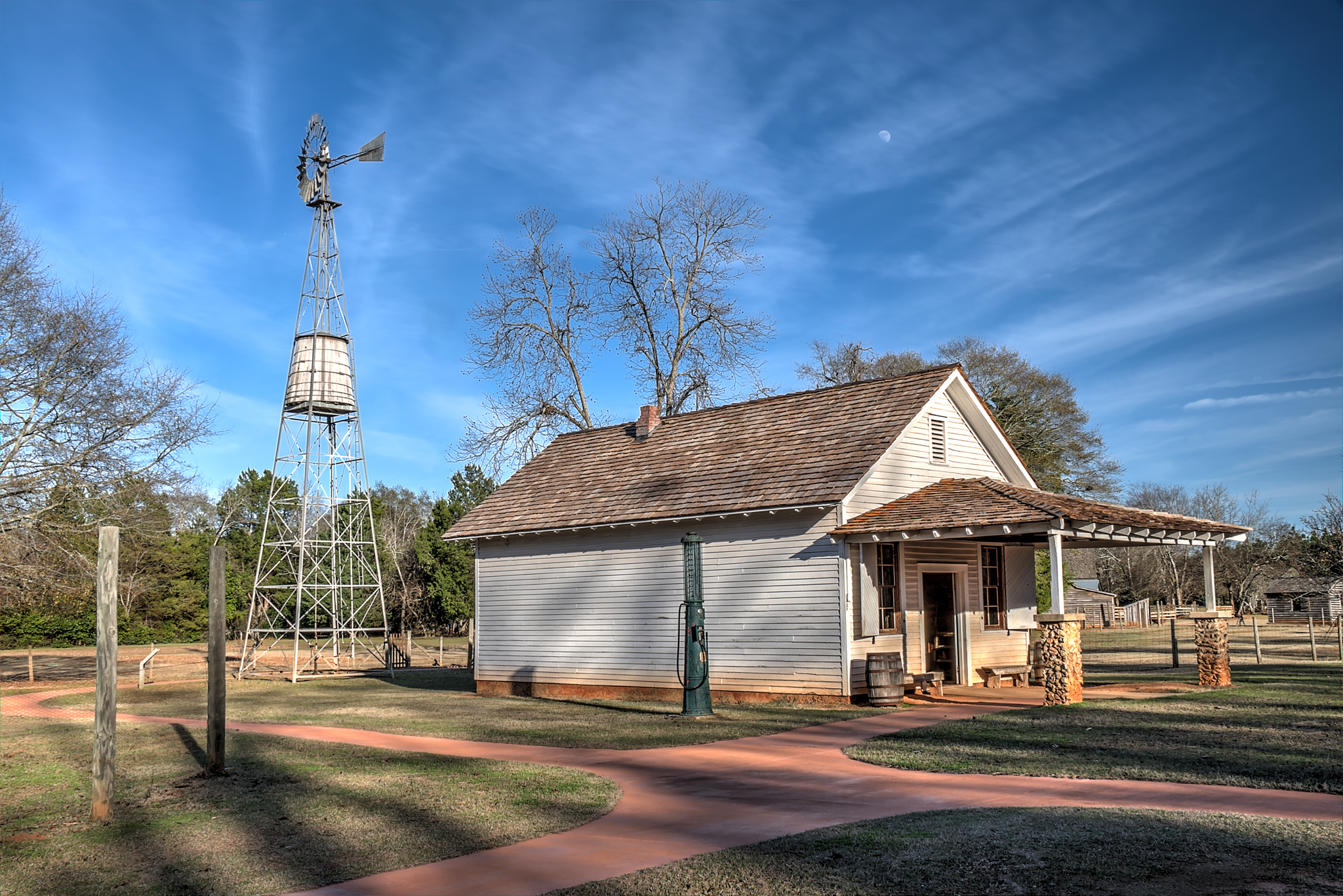|
Cameroon–United States Relations
Cameroon–United States relations are international relations between Cameroon and the United States. History Before independence A U.S. presence in Cameroon predated the independence of French Cameroon in 1960. Since the nineteenth century, Cameroon had attracted American missionaries, some of whom – among them the American Presbyterian Mission and the American Baptist Mission – were influential in establishing education infrastructure in the country. More proximately, the U.S. had established a diplomatic post in Yaoundé in July 1957, with Walter Cutler at the helm. At that stage, the imminence of Cameroonian independence was apparent, and the U.S. sought to position itself for the French withdrawal, counting among its concerns the containment of communist expansion and therefore wishing to monitor the activities of the Union of the Peoples of Cameroon (UPC), a communist civil insurgency. In 1959, the Yaoundé liaison was upgraded to a consulate general, and Ahmado ... [...More Info...] [...Related Items...] OR: [Wikipedia] [Google] [Baidu] |
Cameroon
Cameroon (; french: Cameroun, ff, Kamerun), officially the Republic of Cameroon (french: République du Cameroun, links=no), is a country in west- central Africa. It is bordered by Nigeria to the west and north; Chad to the northeast; the Central African Republic to the east; and Equatorial Guinea, Gabon and the Republic of the Congo to the south. Its coastline lies on the Bight of Biafra, part of the Gulf of Guinea and the Atlantic Ocean. Due to its strategic position at the crossroads between West Africa and Central Africa, it has been categorized as being in both camps. Its nearly 27 million people speak 250 native languages. Early inhabitants of the territory included the Sao civilisation around Lake Chad, and the Baka hunter-gatherers in the southeastern rainforest. Portuguese explorers reached the coast in the 15th century and named the area ''Rio dos Camarões'' (''Shrimp River''), which became ''Cameroon'' in English. Fulani soldiers founded the Adamawa E ... [...More Info...] [...Related Items...] OR: [Wikipedia] [Google] [Baidu] |
Douala
Douala is the largest city in Cameroon and its economic capital. It is also the capital of Cameroon's Littoral Region. Home to Central Africa's largest port and its major international airport, Douala International Airport (DLA), it is the commercial and economic capital of Cameroon and the entire CEMAC region comprising Gabon, Congo, Chad, Equatorial Guinea, Central African Republic and Cameroon. Consequently, it handles most of the country's major exports, such as oil, cocoa and coffee, timber, metals and fruits. , the city and its surrounding area had an estimated population of 5,768,400. The city sits on the estuary of Wouri River and its climate is tropical. History The first Europeans to visit the area were the Portuguese in about 1472. At the time, the estuary of Wouri River was known as the Rio dos Camarões (Shrimp River). By 1650, it had become the site of a town formed by immigrants, said to have arrived from Congo, who spoke the Duala language. During the 18th cent ... [...More Info...] [...Related Items...] OR: [Wikipedia] [Google] [Baidu] |
Peace Corps
The Peace Corps is an independent agency and program of the United States government that trains and deploys volunteers to provide international development assistance. It was established in March 1961 by an executive order of President John F. Kennedy Executive Order 10924 and authorized by Congress the following September by the Peace Corps Act. Kennedy first publicly proposed the Peace Corps during his 1960 presidential campaign as a means to improve America's global image and leadership in the Cold War; he cited the Soviet Union's deployment of skilled citizens "abroad in the service of world communism" and argued the U.S. must do the same to advance values such as democracy and liberty. The Peace Corps was formally established within three months of Kennedy's presidency, garnering both bipartisan congressional support and popular support, particularly among recent university graduates. The official goal of the Peace Corps is to assist developing countries by providin ... [...More Info...] [...Related Items...] OR: [Wikipedia] [Google] [Baidu] |
Non-Aligned Movement
The Non-Aligned Movement (NAM) is a forum of 120 countries that are not formally aligned with or against any major power bloc. After the United Nations, it is the largest grouping of states worldwide. The movement originated in the aftermath of the Korean War, as an effort by some countries to counterbalance the rapid bi-polarization of the world during the Cold War, whereby two major powers formed blocs and embarked on a policy to pull the rest of the world into their orbits. One of these was the pro-Soviet, communist bloc whose best known alliance was the Warsaw Pact, and the other the pro-American capitalist group of countries many of which belonged to NATO. In 1961, drawing on the principles agreed at the Bandung Conference of 1955, the Non-Aligned Movement was formally established in Belgrade, Yugoslavia, through an initiative of Yugoslav President Josip Broz Tito, Indian Prime Minister Jawaharlal Nehru, Egyptian President Gamal Abdel Nasser, Ghanaian President Kwa ... [...More Info...] [...Related Items...] OR: [Wikipedia] [Google] [Baidu] |
Cold War
The Cold War is a term commonly used to refer to a period of Geopolitics, geopolitical tension between the United States and the Soviet Union and their respective allies, the Western Bloc and the Eastern Bloc. The term ''Cold war (term), cold war'' is used because there was no large-scale fighting directly between the two superpowers, but they each supported major regional conflicts known as proxy wars. The conflict was based around the ideological and geopolitical struggle for global influence by these two superpowers, following their temporary Allies of World War II, alliance and victory against Nazi Germany and Empire of Japan, Imperial Japan in 1945. Aside from the Nuclear arms race, nuclear arsenal development and conventional military deployment, the struggle for dominance was expressed via indirect means such as psychological warfare, propaganda campaigns, Cold War espionage, espionage, far-reaching Economic sanctions, embargoes, rivalry at sports events, and technolog ... [...More Info...] [...Related Items...] OR: [Wikipedia] [Google] [Baidu] |
Central Africa
Central Africa is a subregion of the African continent comprising various countries according to different definitions. Angola, Burundi, the Central African Republic, Chad, the Democratic Republic of the Congo, the Republic of the Congo, Equatorial Guinea, Gabon, Rwanda, and São Tomé and Príncipe are members of the Economic Community of Central African States (ECCAS). Six of those states (the Central African Republic, Chad, the Republic of the Congo, Equatorial Guinea, and Gabon) are also members of the Economic and Monetary Community of Central Africa (CEMAC) and share a common currency, the Central African CFA franc. The African Development Bank defines Central Africa as the Central African Republic, Chad, the Democratic Republic of the Congo, the Republic of the Congo, Equatorial Guinea, and Gabon. Middle Africa is an analogous term used by the United Nations in its geoscheme for Africa. It includes the same countries as the African Development Bank's definiti ... [...More Info...] [...Related Items...] OR: [Wikipedia] [Google] [Baidu] |
Multilingualism
Multilingualism is the use of more than one language, either by an individual speaker or by a group of speakers. It is believed that multilingual speakers outnumber monolingualism, monolingual speakers in the World population, world's population. More than half of all Europeans claim to speak at least one language other than their first language, mother tongue; but many read and write in one language. Multilingualism is advantageous for people wanting to participate in trade, globalization and cultural openness. Owing to the ease of access to information facilitated by the Internet, individuals' exposure to multiple languages has become increasingly possible. People who speak several languages are also called polyglots. Multilingual speakers have language acquisition, acquired and maintained at least one language during childhood, the so-called first language (L1). The first language (sometimes also referred to as the mother tongue) is usually acquired without formal educa ... [...More Info...] [...Related Items...] OR: [Wikipedia] [Google] [Baidu] |
Ronald Reagan
Ronald Wilson Reagan ( ; February 6, 1911June 5, 2004) was an American politician, actor, and union leader who served as the 40th president of the United States from 1981 to 1989. He also served as the 33rd governor of California from 1967 to 1975, after having a career in entertainment. Reagan was born in Tampico, Illinois. He graduated from Eureka College in 1932 and began to work as a sports announcer in Iowa. In 1937, Reagan moved to California, where he found work as a film actor. From 1947 to 1952, Reagan served as the president of the Screen Actors Guild, working to root out alleged communist influence within it. In the 1950s, he moved to a career in television and became a spokesman for General Electric. From 1959 to 1960, he again served as the guild's president. In 1964, his speech " A Time for Choosing" earned him national attention as a new conservative figure. Building a network of supporters, Reagan was elected governor of California in 1966. During his g ... [...More Info...] [...Related Items...] OR: [Wikipedia] [Google] [Baidu] |
Jimmy Carter
James Earl Carter Jr. (born October 1, 1924) is an American politician who served as the 39th president of the United States from 1977 to 1981. A member of the Democratic Party, he previously served as the 76th governor of Georgia from 1971 to 1975 and as a Georgia state senator from 1963 to 1967. Since leaving office, Carter has remained engaged in political and social projects, receiving the Nobel Peace Prize in 2002 for his humanitarian work. Born and raised in Plains, Georgia, Carter graduated from the United States Naval Academy in 1946 with a Bachelor of Science degree and joined the United States Navy, serving on numerous submarines. After the death of his father in 1953, he left his naval career and returned home to Plains, where he assumed control of his family's peanut-growing business. He inherited little, due to his father's forgiveness of debts and the division of the estate amongst himself and his siblings. Nevertheless, his ambition to expand and grow the fa ... [...More Info...] [...Related Items...] OR: [Wikipedia] [Google] [Baidu] |
Richard Nixon
Richard Milhous Nixon (January 9, 1913April 22, 1994) was the 37th president of the United States, serving from 1969 to 1974. A member of the Republican Party, he previously served as a representative and senator from California and was the 36th vice president from 1953 to 1961 under President Dwight D. Eisenhower. His five years in the White House saw reduction of U.S. involvement in the Vietnam War, détente with the Soviet Union and China, the first manned Moon landings, and the establishment of the Environmental Protection Agency and Occupational Safety and Health Administration. Nixon's second term ended early, when he became the only president to resign from office, as a result of the Watergate scandal. Nixon was born into a poor family of Quakers in a small town in Southern California. He graduated from Duke Law School in 1937, practiced law in California, then moved with his wife Pat to Washington in 1942 to work for the federal government. After active ... [...More Info...] [...Related Items...] OR: [Wikipedia] [Google] [Baidu] |
Lyndon B
Lyndon may refer to: Places * Lyndon, Alberta, Canada * Lyndon, Rutland, East Midlands, England * Lyndon, Solihull, West Midlands, England United States * Lyndon, Illinois * Lyndon, Kansas * Lyndon, Kentucky * Lyndon, New York * Lyndon, Ohio * Lyndon, Pennsylvania * Lyndon, Vermont * Lyndon, Sheboygan County, Wisconsin Lyndon is a town in Sheboygan County, Wisconsin. The population was 1,468 at the time of the 2000 census. It is included in the Sheboygan, Wisconsin Metropolitan Statistical Area. The ghost town of Winooski was located in the town. Geography Acco ..., a town * Lyndon, Juneau County, Wisconsin, a town Other uses * Lyndon State College, a public college located in Lyndonville, Vermont People * Lyndon (name), given name and surname See also * Lyndon School (other) * Lyndon Township (other) * * Lydon (other) * Lynden (other) * Lindon (other) * Linden (other) {{disambig, geo ... [...More Info...] [...Related Items...] OR: [Wikipedia] [Google] [Baidu] |
Assistant Secretary Of State For African Affairs
The Assistant Secretary for the Bureau of African Affairs is the head of the Bureau of African Affairs, within the United States Department of State, who guides operation of the U.S. diplomatic establishment in the countries of sub-Saharan Africa and advises the Secretary of State and the Under Secretary for Political Affairs. On July 18, 1958, Congress authorized an 11th Assistant Secretary of State, enabling the Department of State to create a bureau to deal with relations with the newly independent nations of Africa. At first, when the Department of State established three geographical divisions in 1909, African affairs were the responsibility of the Divisions of Near Eastern and Western European Affairs. Department Order No. 692 of June 15, 1937, transferred responsibility for all African territories except Algeria and the Union of South Africa The Union of South Africa ( nl, Unie van Zuid-Afrika; af, Unie van Suid-Afrika; ) was the historical predecessor to the pr ... [...More Info...] [...Related Items...] OR: [Wikipedia] [Google] [Baidu] |


.png)

.jpg)


